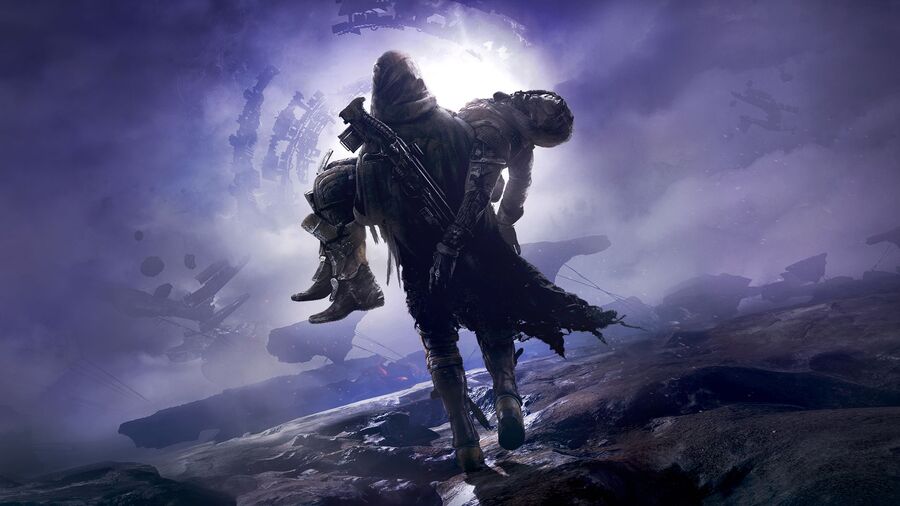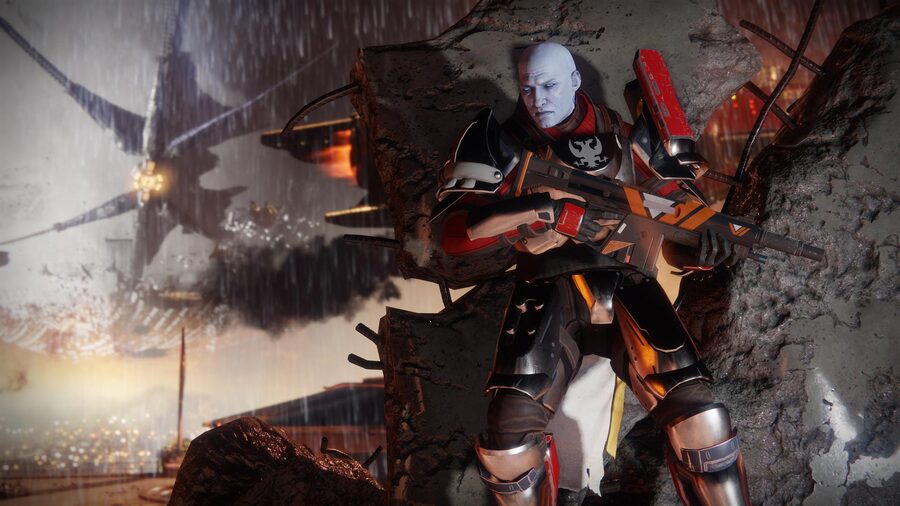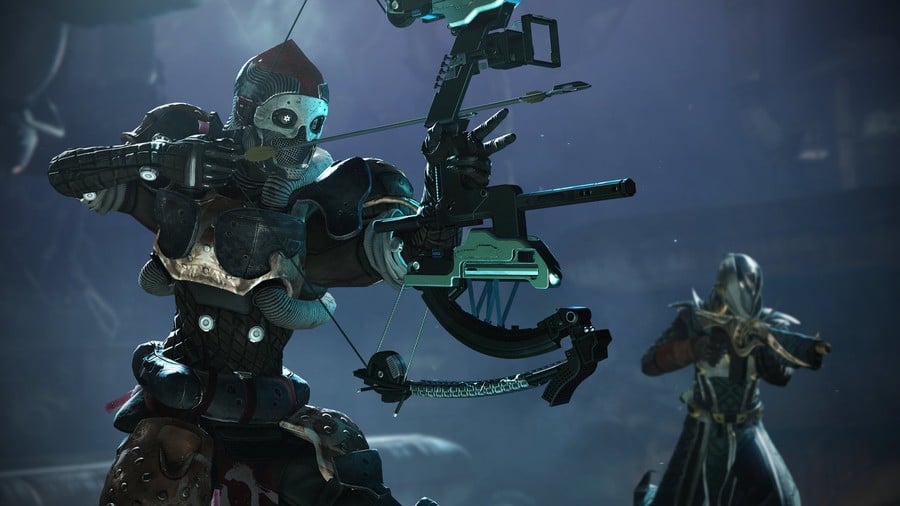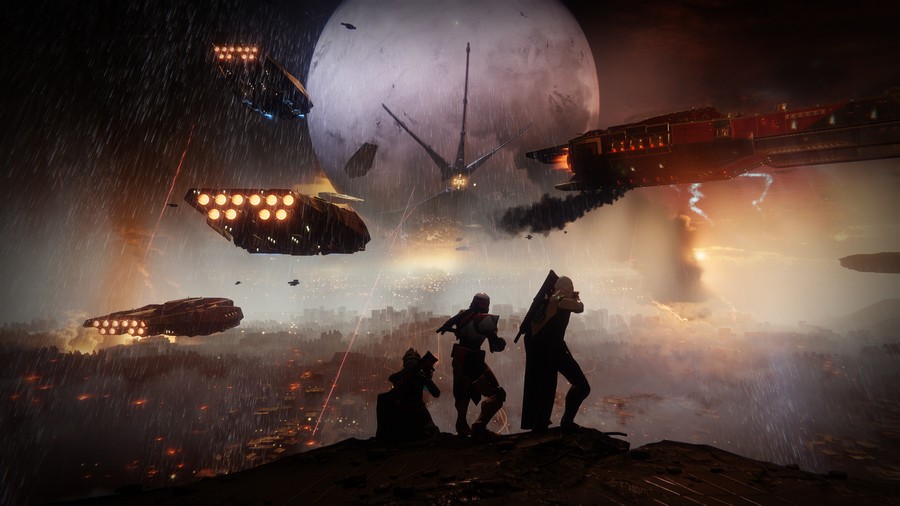
It happened. Bungie and Activision have parted ways prior to the end of what was a seismic ten year publishing deal for Destiny. While Bungie’s staff allegedly popped champagne and cheered the announcement, and Activision thanked the fans for their participation, what of Destiny itself? In the analogy of a divorce, Destiny remains a child that struggles to fit in, full of untapped potential. With custody being handed solely to Bungie, what does this mean for the future of a title that has captivated so many gamers worldwide?
Needless to say, the following is caveated by making it clear that we know little of the tensions or reasons behind the Bungie/Activision split. Aside from perennial industry journalist Jason Schreier’s comments on the matter (on Twitter, Kotaku, and in his book 'Blood, Sweat, and Pixels'), we don’t know a great deal other than that Activision made it clear that Destiny 2’s latest expansion, Forsaken, had underperformed commercially. If there’s one publisher that knows when to cut loose of something, it’s Activision, and maybe it saw something that perhaps the rest of us didn’t.
It’s also worth pointing out that while it’s easy to paint Activision as the “big bad” in this scenario, Bungie has made plenty of mistakes in the four years since Destiny’s initial arrival. While Activision likely set the price of expansion content, the quality has been inconsistent. It wasn’t Activision that suggested players would “throw money at the screen” for cosmetics or implemented the throttling of XP gains. This is, of course, well documented elsewhere, but for now, let’s look at the future of the Destiny IP.

The initial thoughts from the community (at least in the short term) seem to hope that the game’s microtransaction structure could change. At present (and in the most basic of terms), some cosmetic gear can be purchased using real money in the game’s Eververse Store, something that has never sat well with players since Destiny 2 remains a full-priced retail title with an expensive expansion structure (more on that in a moment). While Activision has been suggesting more monetisation of Blizzard projects as well, I don’t think the removal of their influence will lead to fewer microtransactions. Rather, I think this will remain in play, albeit with all revenue going to Bungie henceforth.
Anecdotally I’ve seen people suggest they’re happier to pay for these items now in order to support Bungie’s independence, and Bungie will need it. While breaking the “shackles” of Activision allows more creative freedom, it also introduces a significant degree of risk. This could be negated somewhat by the studio's partnership with Chinese firm NetEase, but despite some speculation, I don’t see Bungie partnering with Sony or Microsoft – it needs all the players that it can get across both consoles and PC. With this in mind, there are other revenue models that could come into play.
Fortnite’s success (personal preference aside, it's a game that runs well on any number of systems) can at least partially be attributed to its free-to-play nature. Bungie seemed to at least consider this approach over the last few months, giving Destiny 2 away on PlayStation Plus and on the Battle.net launcher, and this would surely bring new players into the fold.

At its core, Destiny 2 is an excellent shooter – gunplay, movement, and weapon diversity are all tuned to near-perfection, which make it an easy sell at least mechanically. Its stumbles have often come in terms of content which is expensive to produce, and this pipeline is unlikely to flow freely without Activision’s dollars.
And so another option is to offer a monthly subscription fee, perhaps in the style of Battle.net stablemate World of Warcraft – introducing it after a player reaches a certain level. As unpopular as this would be, if Bungie can provide adequate reasons to invest, there are many who I believe would stump up an extra amount per month to be able to play regularly released content of a higher quality instead of dismal expansions like Curse of Osiris. Too little to show for this investment, however, and the entire franchise could collapse under the weight of its already not-insignificant cost.
Of course, Bungie has already attempted something similar. Forsaken launched alongside a new "annual pass" which allows for (what we now know to be) smaller endgame activities like December’s Black Armory. While still fairly slender and with a disappointing reliance on grind-filled quests, it’s been enough to satiate many players until the next drop. Could we see more annual passes in lieu of Destiny and Destiny 2’s season passes?

Obviously this could all be for nought. Destiny 3 is already rumoured to be in development, but there is a chance that without Activision’s insistence on an annualised release cadence, it could be delayed to allow for it to be something that neither of the first two entries have been: complete. As I’ve posited before, Bungie cannot allow Destiny 3 to ship needing a sizeable expansion a year later to fix things a la The Taken King or Forsaken.
It’s fair to say there are many questions surrounding the future of Destiny, and while these questions will need to be answered by the end of the current content plan in Autumn of 2019, assurances will need to be made before that. There has never been so much competition from all sides – similar titles such as ANTHEM and The Division 2 land in February and March respectively, while Monster Hunter: World’s Iceborne expansion later this year could also eat into Destiny’s market share as a loot-driven RPG.
As a franchise that has divided gamers since its inception, the next chapter of Destiny is in Bungie’s hands exclusively for the first time. Here’s hoping that this isn’t a “be careful what you wish for” scenario.
What are your hopes for Destiny's future? What would you like to see Bungie do going forward? Embrace your own destiny in the comments section below.





Comments 16
Not a Destiny fan so don't have much to add to the discussion, but I thought this was a really fair and balanced read, Lloyd. Proposed a lot of different potential permutations.
I'll be interested to see how this whole thing develops over the coming years.
This divorce has been especially hard on Destiny's Child
I think the underlining hope for a lot of people is that Bungie will, in general, have more creative freedom over Destiny. We can't know for sure how heavily Activision was involved with the series' development, like the article says, but you've got to imagine that Activision as a publisher had limitations in place. It's going to be fascinating to see what direction Destiny goes in next and whether its model changes on a fundamental level.
Great article Lloyd!
This divorce could be a blessing for Anthem (if they don't fumble the launch). Bungie, for now, has only confirmed that they gonna roll out the remaining of the roadmap (that end on summer 2019) for Destiny 2, and without the resources of Activision (specially the supporting studios), it's gonna be hard to have some big fall content launch. EA and BioWare could use this opportunity to occupy Destiny market. After all, no one belived that Fortnite could topple PUBG from the to spot.
I can see them offering up different Tiers of content for purchase. The micro transactions will never go away, which doesn’t bother me since I rarely purchase any of them. But a tier based option seems plausible to me. One things for sure, whatever path they take, plenty of players on either side are going to be disappointed and express it loudly. It’s impossible to please all gamers all of the time.
As a D2 player with a solid 1000hrs played I really hope Bungie take the Warframe method of adding content without releasing a new game. We don't need a Destiny 3, just bring over all the D1 content much like IO did with Hitman 2. Give us back the older raids and strikes and then build from there going forwards.
Great read. Thank you Lloyd.
I personally would rather they release an uncompromised Destiny for the usual price and pay a subscription (which you touched on) of £5 a month if they had a clear road map. Destinys gameplay is fundamentally the best out there in fps.
@Shigurui Yeah I think the ideal model in most people's eyes is a base game that just continues to grow and grow and grow like Warframe, or an MMO. The sequel model just isn't right.
To be honest, regardless of the split with Activision or not, I think I'm done with destiny at launch after spending full price for everything this time around. Over $200 later, and even WITH friends this time around to do raids and endgame activities, I've still put more time into Rocket League last year.
Yes, I've had fun, and yes, I've gotten what I guess I would consider my money's worth. But in the end, patience will literally save me hundreds of dollars. That's my mantra moving forward this year for all games. (RE2 and KH3 being exceptions because, well, they've earned it)
without knowing exactly why the split, it's not immediately obvious what bungie will gain out of it. sure, they can self-publish it, but they're unlikely to have anything like the marketing budget.. plus bungie itself is responsible for many of game's problems and bad design. maybe locking off old content was something activision insisted upon to try and entice people to pony up for new expansions, but it hasn't done this with other franchises. ropeing in the likes of beenbox to create strikes etc maybe didn't sit too well with bungie, as activision sought to get more dlc/purchasable content out there.. but there have been consistent reports that destiny's dev tools and engine are particularly troublesome and not condusive to building rapid content, and although it might get that deadline/target monkey off their back.. you can't help but think it would be a problem going forward.
all the eververse does is add an additional mountain of tat to dismantle in the inventory, that's a level of annoyance that even monetisation doesn't add. instead of designing thousands of shaders, armour, weapons, ghosts, ships, sparrows.. etc., particularly when there aren't really that many archetypes, the time could be better spent in designing new activities and areas. destiny attempts to pull a lot of smoke & mirror tricks to try convince that you're not rehashing the same small areas/arenas over and over again.
as a game with a persistent online focus, destiny 3 could work as a launch title on the next consoles, particularly as the first year or so will see a lot of cross-gen releases, and as releases for the old consoles slack off, and the slate is bare for the new consoles. and if PS5 were to launch in Q4 of 2020, the timeframe might suit. i played a lot of warframe in 2014.. being there from the start undoubtely helped warframe, and though they've improved/overhauled it a couple of times, i don't think it would have been as successful if it had launched in 2016 when new releases were plentiful..
I was eagerly awaiting your thoughts on this bit of news Lloyd and I'm impressed! Not a Destiny fan but you've complied lots of thoughts and facts. Great read!
COD. Battlefield. Battlefront. Halo. Titanfall. Rainbow 6. The Division. Over watch. Player Unknown. Warframe. Fortnite. Splatoon. Anthem coming. Dozens more. And Fallout 76!
Maybe... just maybe there may be more online shooters on the market than the market can support? Destiny cost a lot, so maybe Activision aren’t wrong in axing it with the thought of loot boxes being banned. Let’s be honest, cash will come before art because without cash art doesn’t get made.
If I were Bungie I wouldn’t be so certain that Destiny going forward is a viable business model- unless they plan to cut costs or change how the game is paid for- which isn’t so easy in this race to F2P these days.
@Xaessya
It's over folks. We have the internet winner of the day!
Very clever.
@Shigurui
This is exactly the correct answer. There should be no numbered iterations - just Destiny.
@ShogunRok @NorrinRadd - The way I see it is if you're making a persistent world MMO lite then keep it all together by all means possible, it just makes more sense going forward now they don't have Acti pushing them for a new game.
It will be interesting to see how this goes as at the moment it can go so many different ways. I think who was responsible for each blunder got very blurred in the end. I have seen a lot of people blaming Activision for Tess when it was Bungies idea to put her in. Sadly I think Tess was the start of the downfall of Destiny as a whole. It seemed to me all the cool stuff was being designed for Eververse to try to entice players to pay money to them. With the blander cosmetics put into the main game. It does make you think how much time was devoted to making new things to sell in Eververse and whether that time could of been used to make an extra mission or strike.
I think the grand vision for Destiny is so big that I worry how Bungie are going to achieve that without the money from Activision. They will have a core playerbase but it depends how big that playerbase is by the time Destiny 3 rolls around. If Anthem or Division 2 get it right they could take a chunk of the dwindling playerbase. Another problem I see is Destiny 2 just limping to the end as Bungie wont be that bothered but just want to see out there duties of the contract for Forsaken DLC. Which in turn could lose some more of the playerbase.
Tap here to load 16 comments
Leave A Comment
Hold on there, you need to login to post a comment...